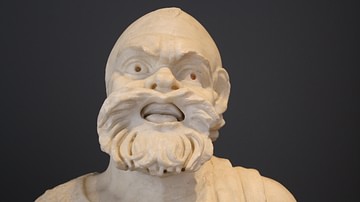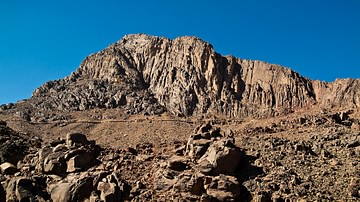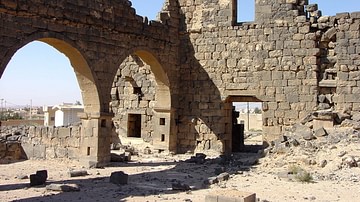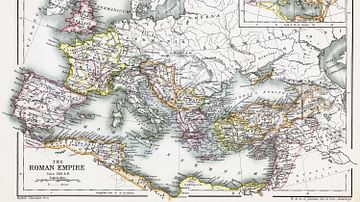Search
Remove Ads
Advertisement
Summary 
Loading AI-generated summary based on World History Encyclopedia articles ...
Search Results

Definition
Moses
Moses (c. 1400 BCE) is considered one of the most important religious leaders in world history. He is claimed by the religions of Judaism, Christianity, Islam and Bahai as an important prophet of God and the founder of monotheistic belief...

Collection
Comedy & Tragedy: the Drama of Greek Theatre
Greek theatre likely sprang from the lyrical performance of ancient epic poetry and the rituals performed in the worship of the god Dionysos where goats were sacrificed and participants wore masks. From the 6th century BCE, Greek tragedy...

Article
The Dutch Discovery of Australia
17th-century Dutch East India Company (Vereenigde Oostindische Compagnie or VOC) navigators were the first Europeans to set foot on Australian soil. Although there is a strong theory that the Portuguese explorer, Cristóvão de Mendonça (1475-1532...

Article
European Discovery & Conquest of the Spice Islands
Clove, nutmeg, and mace are native to only a handful of tiny islands in the middle of the vast Indonesian archipelago – cloves on five Maluku Islands (the Moluccas) about 1250 km (778 mi) west of New Guinea, and nutmeg on the ten Banda Islands...

Definition
Mount Sinai
Mount Sinai (Hebrew: Har Sinay, Arabic: Jabal Musa, "mountain of Moses") is a holy site for the three Abrahamic religions: Judaism, Islam, and Christianity. It has traditionally been located in the center of the Sinai Peninsula, between Africa...

Article
Jesus & the Law of Moses
New Testament studies now place Jesus Christ within the parameters of Second Temple Judaism in the 1st century CE, attempting to go behind the layers of later Christian theology and philosophy (such as the trinity) to understand how his message...

Definition
Confucianism
Confucianism is a philosophy developed in 6th-century BCE China, which is considered by some a secular-humanist belief system, by some a religion, and by others a social code. The broad range of subjects touched on by Confucianism lends itself...

Definition
Mavia
Mavia (r. c. 375-c. 425 CE) was a warrior-queen of the semi-nomadic Tanukhid Arab tribe of Syria and Jordan who led a successful insurrection against Rome in 378 CE. She is also known as Maowiva, Mu`awiya, Mauia, Mania, and Mawiyya. Her control...

Video
Thespis, Athens, and The Origins of Greek Drama: Crash Course Theater #2
This week on Crash Course Theater, Mike is acting like theater started in Greece. Well, for the western theater, this is true. The earliest recorded drama in the west arose in Athen, and these early plays grew out or religious ritual. Namely...

Article
Mavia's Revolt & the Christian Question
In 378 CE the Tanukhid queen Mavia (r. c. 375 - c. 425 CE) of the Saracens led a successful revolt against the Roman Empire, pitting her forces against the armies under the emperor Valens (364-378 CE). Launching her insurrection from the...